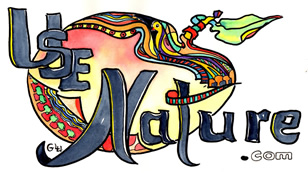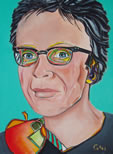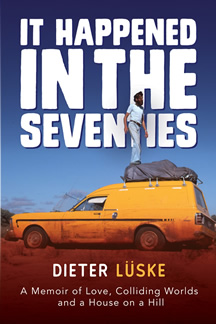useNature.com ... Sustainable Living NEWS - Health - Politics - Lifestyle - Holistic Earth Care
Sustainable Living News
Green - Toxic Free - Ethical - Sustainable
Active Prevention ... the Future of Health & Earth Care!
useNature's Sustainable Living & Holistic Earth Care News
First of all we have to remember that Sustainable Living is nothing new. Only a few generation back, our Grant or Great Grant parents lived sustainable, obviously not by choice, more by natural circumstances.
What is (relatively) new, is the Global Climate change, the Greenhouse effect. However, the science of Climate change was known already much earlier, it was well researched in the 1970, unfortunately, it was not acted upon, and even more frustrating is the fact that action is still slow.
How can you help?
Using less of everything which is produced by using power is a good start. Planting trees of course is important but similar or even more important is soils improvement. Improved soil could trap as much planet-warming carbon as the transport industry produces! - Find News and Articles below:
Sustainable Living Menu
Environmental Degradation Solutions - |
| Why Buy Organic - 13 good reasons .... and .... supporting organic products is a fundamental contribution to sustainable living. |
| Sustainable Living & Earth Care - Q & A - useNature's Editor interviewed by "Eco Conscious Movement" |
| Soil regeneration & carbon storage ... Is general health declining in synchronicity with soil health? - What has human health in common with soil health? |
| Indoor Air Pollution and Sustainable Living - Selecting natural materials for your indoor decor will be less likely cause Sick Building Syndrome. |
| Organic Gardening, a lifestyle in sustainability - Gardening Hints - Tips & Companion Planting |
| What is Permaculture? - Sustainable Farming |
| Organic Wine Info |
| Soil regeneration ... sequestering carbon Carbon sequestration describes long-term storage of carbon dioxide to defer global warming and avoid dangerous climate change. |
| Holistic Cooking in Season |
It may be worthwhile to have a closer look at lifestyles at a time when global warming was not an issue, - go back to the late 19 hundreds, or early 20 century.
Food consisted mostly of local grown produce and of what busy, mainly women, had conserved and stored in their pantries.
Energy consumption was low, as it is without electricity :-) No fridges, washing machines or kitchen gadgets available.
Fashion was mainly linen, cotton or wool. And as I can remember, my jumpers were knitted from used washed wool, and unraveled be re-knitted again is a larger sizes. Wool often was reused for a couple of generation ..... that's sustainability.
Transport was less, because everyone shopped and used local products and produce.
Everything seem to last so much longer, and cheap nasty products, which would brake down after a couple of uses where simply not around.
Many families had small gardens to substitute their diet. The Gardens where Organic Gardens. And the autumn school holidays was the time were school kids helped the farmers to dig up the potato crop, and parents bought a huge bag of potatoes to be stored and to be used over a couple of month or longer..
Yes, we can learn from that, sustainability is possible, can be fun, and is actually much more healthy for you.
Why is it more healthy? Because you eat fresh products and probably less, because your taste buds are not artificially stimulated to crave more empty calories.
Want to be earth conscious and become active in sustainable living?- What stops you?
| Disclaimer: The information provided in this article is intended for general use and for personal interest only. It should not be used or understood as suggestion, medical advice, or personal counselling. |
Dieter Lüske
N.D.-D.C.H.-D.M.H.-D.H
Buy Now
It happened in the seventies
Intriguing story of personal risk-taking, self-discovery and profound change.



